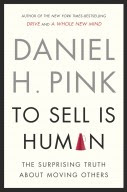 Business is frightfully competitive. So we tend to believe only
the fittest survive.
Business is frightfully competitive. So we tend to believe only
the fittest survive.
But success may take more
luck than pluck.
Investment strategist Michael
Mauboussin thinks so.
He claims we're too quick to discount the role chance plays in business.
“People attempt to extract lessons from what is mostly a
random process,” Mauboussin tells readers of Inc.
“Once something has been successful, we start to believe it
was the only thing that could have happened.”
By idolizing
business winners, Mauboussin says, we forget there were others who followed the same strategies,
but failed.
Remembering
those failures helps you “keep your mind open to other possibilities,” he says.
Paleontologist Stephen
Jay Gould observed the same thing in nature. Gould thought chance was a deciding factor in the evolution of life on earth.
He based his conclusions on fossilized animals discovered in Canada’s
Burgess Shale.
The animals in the Burgess Shale were all
exquisitely suited to their environment. But none left modern descendants.
From the fact, Gould concluded that fitness is no guarantee of survival.
Survival is really a matter of luck.
 On Pike Place in Seattle, I visited the original Starbucks this week.
On Pike Place in Seattle, I visited the original Starbucks this week.





